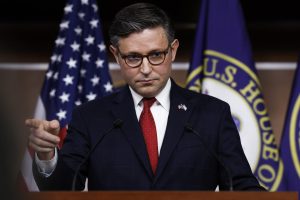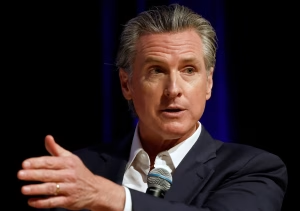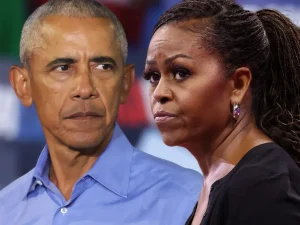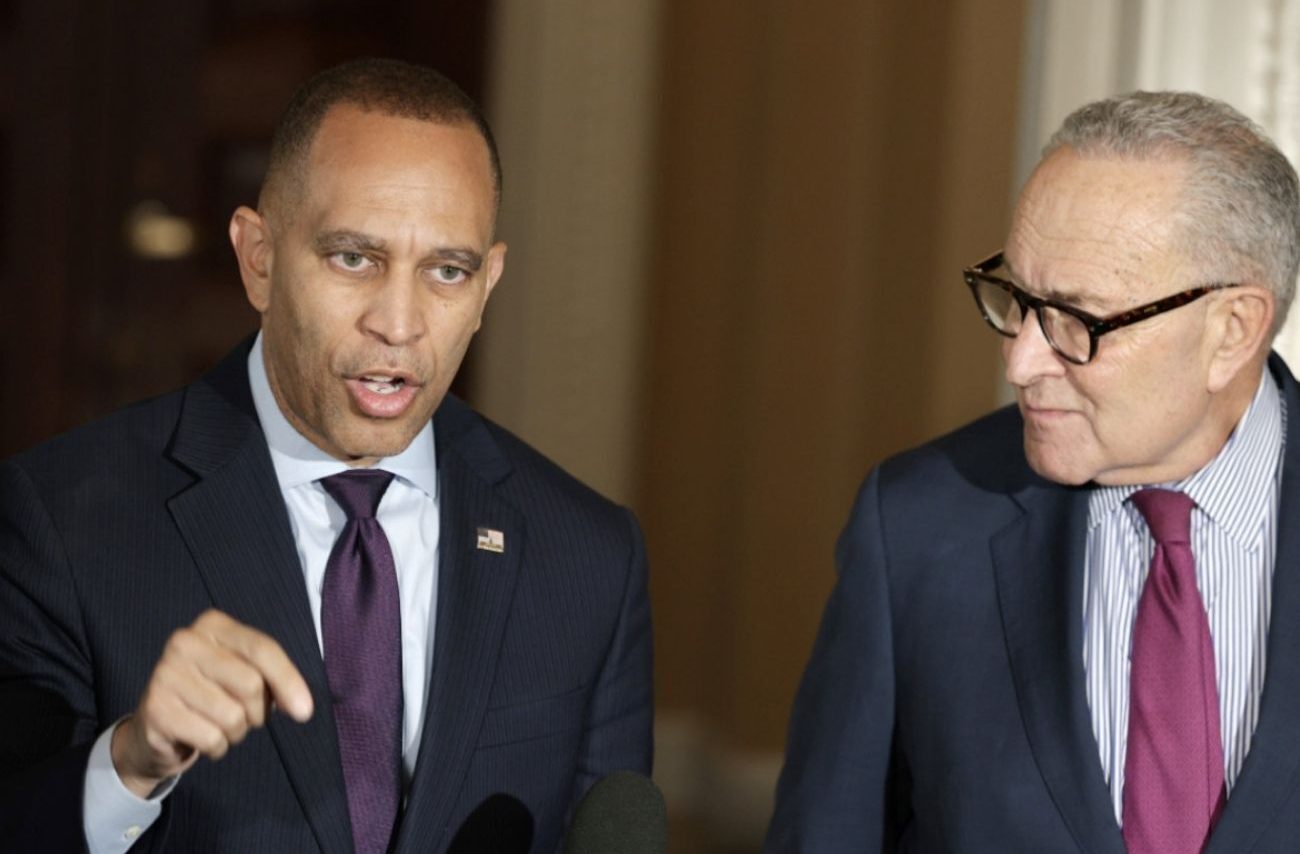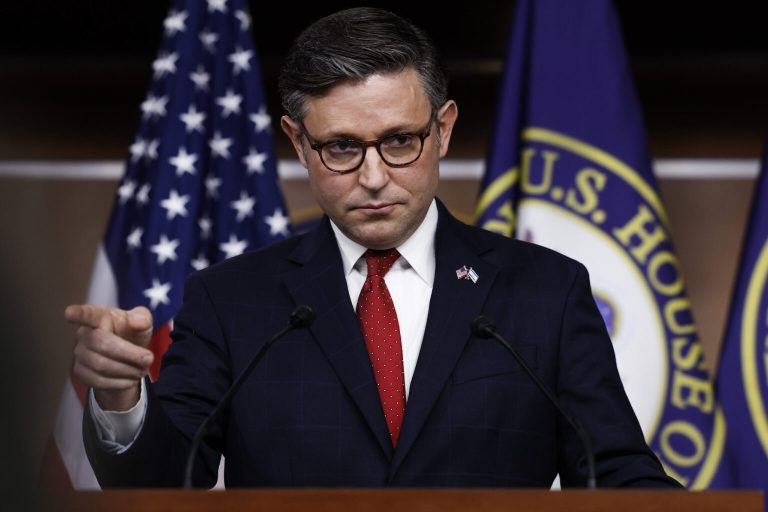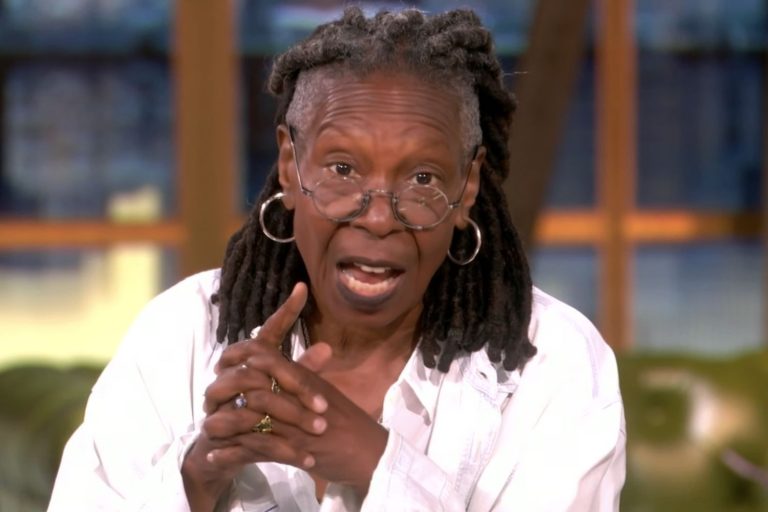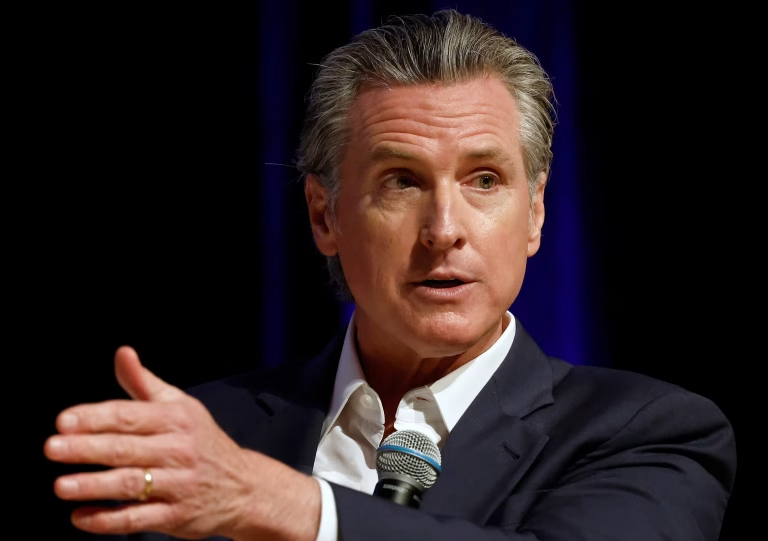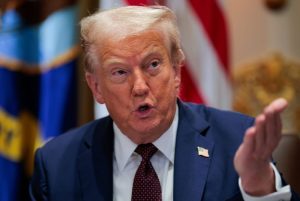WASHINGTON, D.C. — Signs of internal strain are beginning to show within the Democratic Party as dozens of congressional candidates across the country hesitate to commit to supporting House Minority Leader Hakeem Jeffries (D-N.Y.), according to a new Axios report.
The responses, gathered from over a hundred candidates running for competitive U.S. House seats in 2026, reflect a growing unease about the party’s direction and leadership heading into the next election cycle.
Jeffries, who took over as Democratic leader in 2022 following Nancy Pelosi’s retirement from leadership, has until now maintained a reputation for unity and control within his caucus. But that consensus appears to be fracturing, particularly among younger and more progressive candidates who argue that the party needs to take a bolder stance against Republicans — and, increasingly, against President Trump’s continued influence in national politics.
Survey Shows Unease Among Democratic Candidates
Axios reached out to nearly every Democrat running in potentially winnable House districts for 2026, receiving 113 responses through interviews and written statements.
Of those:
-
20 candidates said outright they would not vote for Jeffries as leader.
-
Five more said they were leaning against supporting him.
-
57 candidates declined to commit either way, saying it was “too early” or expressing doubts about his leadership style, ideological positioning, or strategic direction.
-
Only 24 respondents said they would definitely back Jeffries, and seven others said they were likely to support him.
While those numbers don’t reflect current sitting members of Congress, they signal potential future divisions within the Democratic ranks — divisions that could complicate Jeffries’ efforts to maintain his grip on leadership if Democrats win back the House.
Growing Dissatisfaction on the Left
Progressives and grassroots activists have been increasingly vocal about their frustration with what they perceive as a lack of urgency from party leaders on issues like health care, climate policy, and economic inequality.
While Senate Minority Leader Chuck Schumer has taken most of the heat from the left in recent months, Axios noted that Jeffries is now becoming a lightning rod for dissatisfaction as well.
“Leader Jeffries is focused on battling Donald Trump, ending the Republican shutdown, and addressing the GOP’s health care crisis,” said Justin Chermol, a spokesperson for Jeffries. “That’s where his focus will remain — not on internal politics.”
Still, some Democratic hopefuls told Axios they believe a new generation of leadership is needed to “fight harder” and “show more vision.”
Who’s Speaking Out — and Who’s Staying Quiet
Among the more prominent figures withholding support are several candidates from key battleground states and major metropolitan areas, including Daniel Biss and Kat Abughazaleh, both running to replace retiring Rep. Jan Schakowsky (D-Ill.).
Abughazaleh told Axios she wants a leader who takes “actual action against this administration” and believes the party’s left flank should “use our leverage to demand progressive change.”
Other well-funded challengers who have declined to back Jeffries include Luke Bronin, Donavan McKinney, Mai Vang, Saikat Chakrabarti, and Patrick Roath, each of whom is mounting high-profile primary bids against long-time Democratic incumbents.
Heath Howard, a state representative from New Hampshire running for an open U.S. House seat, said Democrats need “a new type of leadership that’s going to fight back significantly harder against the Trump administration.”
In Texas, Amanda Edwards, a former Houston city council member now running in a special election, said simply: “We’ve got to see improvement, without question.”
And in Maryland, firefighter and candidate Harry Jarin, who is challenging former Majority Leader Steny Hoyer, told Axios: “The anger of the base right now is not being matched by Democratic leadership … and that is going to have to change one way or another.”
Tensions Over Endorsements and Ideology
A recurring grievance among candidates who have withheld support for Jeffries is his refusal to endorse left-leaning candidates in local and state races, particularly New York City mayoral contender Zohran Mamdani, a self-described socialist.
“His refusal to endorse Zohran makes me nervous that, if I were to become the nominee in my race, he and the party would not support me,” said Jacob Lawrence, a North Carolina Democrat running to challenge Republican Chuck Edwards.
Saikat Chakrabarti, the former chief of staff to Rep. Alexandria Ocasio-Cortez, echoed that sentiment, joking that Jeffries’ reluctance to back Mamdani says everything about his leadership approach: “What is it that Hakeem said about endorsing Zohran? ‘I’ll have conversations with him and see where it goes.’”
To some progressives, that kind of cautious pragmatism is exactly what they want to move beyond.
A Leadership Balancing Act
For Jeffries, the challenge lies in balancing competing factions within a party that has grown more ideologically diverse. While he has earned praise from moderates for keeping Democrats unified during key budget negotiations, his relationship with the progressive base remains complicated.
Party insiders note that Jeffries has worked hard to position himself as a unifier capable of appealing to both establishment figures and reform-minded newcomers. However, that balancing act is becoming more difficult as generational and ideological divides widen ahead of 2026.
“This is less about Jeffries personally and more about where the party wants to go,” said one Democratic strategist familiar with the Axios survey. “There’s a clear tension between the pragmatic wing and the activist wing. That’s going to define 2026.”
What It Means for 2026
The hesitation from so many Democratic hopefuls doesn’t necessarily mean Jeffries’ leadership is in immediate danger. Still, it highlights potential fractures that could emerge if Democrats face another tough election cycle or fail to regain the House majority.
Jeffries remains a skilled fundraiser and an effective communicator, two traits that have kept him in good standing with most members of the current caucus. But if new voices from the left continue gaining traction, he may face the most serious internal challenge since taking the helm.
For now, Jeffries and his team are projecting confidence. “Our mission is clear — to stop the Republican agenda and defend working families,” said Chermol. “Leader Jeffries is doing that every day.”
Still, the survey results suggest a quiet undercurrent of restlessness within the Democratic ranks — one that could reshape the leadership landscape in Washington over the next few years.

Emily Johnson is a critically acclaimed essayist and novelist known for her thought-provoking works centered on feminism, women’s rights, and modern relationships. Born and raised in Portland, Oregon, Emily grew up with a deep love of books, often spending her afternoons at her local library. She went on to study literature and gender studies at UCLA, where she became deeply involved in activism and began publishing essays in campus journals. Her debut essay collection, Voices Unbound, struck a chord with readers nationwide for its fearless exploration of gender dynamics, identity, and the challenges faced by women in contemporary society. Emily later transitioned into fiction, writing novels that balance compelling storytelling with social commentary. Her protagonists are often strong, multidimensional women navigating love, ambition, and the struggles of everyday life, making her a favorite among readers who crave authentic, relatable narratives. Critics praise her ability to merge personal intimacy with universal themes. Off the page, Emily is an advocate for women in publishing, leading workshops that encourage young female writers to embrace their voices. She lives in Seattle with her partner and two rescue cats, where she continues to write, teach, and inspire a new generation of storytellers.
